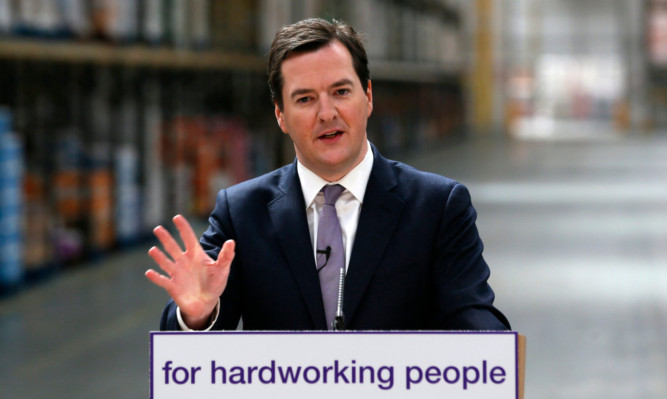George Osborne insisted the public backs controversial Government benefit reforms and appeared to take a swipe at church leaders and charities who launch wholesale attacks on the plans.
The Chancellor who came in for criticism after he linked the case of child killer Mick Philpott to welfare insisted he does not “set out to be divisive”.
In an interview with John Pienaar on BBC Radio 5 Live, Mr Osborne claimed many of his views were “in tune with what the great majority of the country think and experience in their everyday lives”.
Last week the Baptist Union of Great Britain, the Methodist Church, the United Reformed Church and the Church of Scotland accused ministers of manipulating figures to vilify the poor.
A number of leading charities also published reports heaping pressure on the Government about the impact of tax and welfare reforms.
Mr Osborne was also branded “deeply irresponsible” after he said there was a question about how the welfare state was “subsidising lifestyles” like Philpott’s.
Asked about the criticism he faces, Mr Osborne told Pienaar’s Politics: “Well I don’t set out to be divisive. Actually far from it. I think a lot of the things that I’ve been saying, that (Work and Pensions Secretary) Iain Duncan Smith and others in the Government have been saying, are in tune with what the great majority of the country think and experience in their everyday lives.”
He added: “I think it’s striking that despite actually an attempt to get an alternative argument going this week, saying that all these changes to the welfare system over the last week have been unfair, the public don’t accept that, the public agree with it.”
Sweeping reforms, including a below inflation 1% cap on working-age benefits and tax credit rises for three years, have now come into force.
Around 660,000 social housing tenants deemed to have a spare room will lose an average £14 a week in what critics have dubbed a “bedroom tax”.
Labour’s deputy leader admitted it was understandable that workers felt “resentful” about benefits claimants that do not want a job as the party attempted to reposition itself on welfare.
Harriet Harman said: “For people who are looking for a job and can’t find work, it’s deeply frustrating, and then of course the small minority who don’t want to work well they are let off the hook by the fact there isn’t a proper work programme.”
